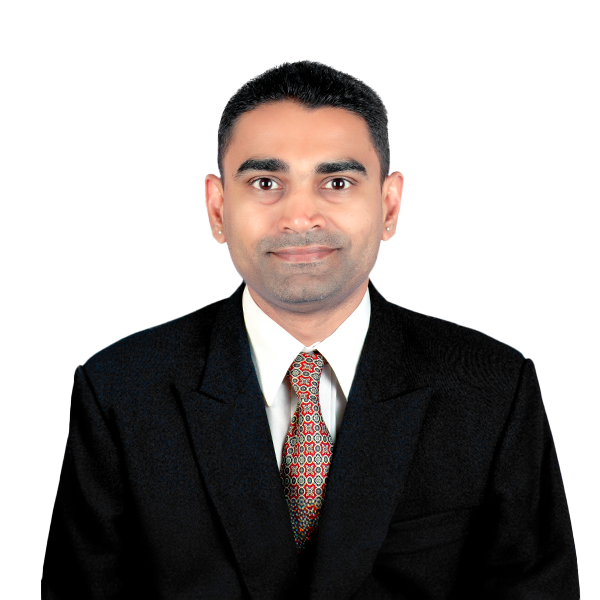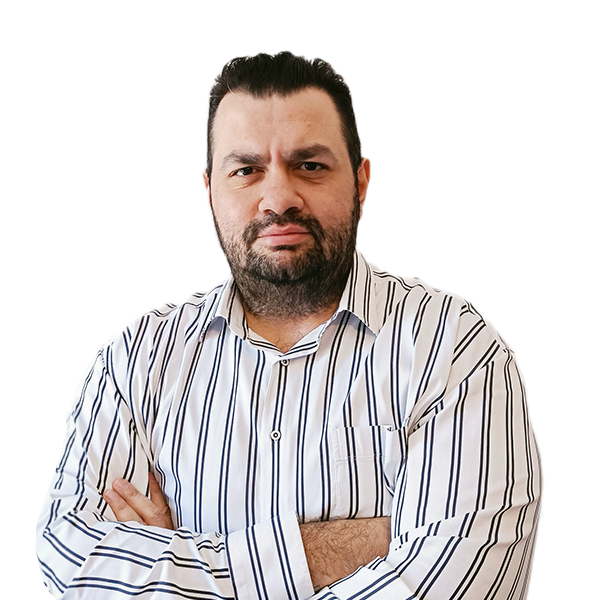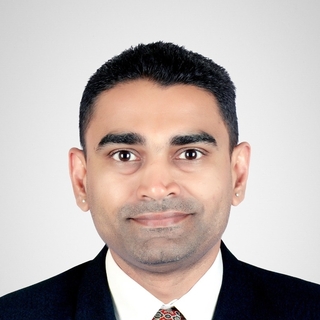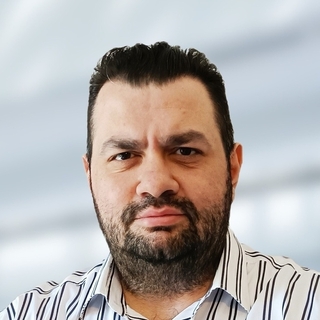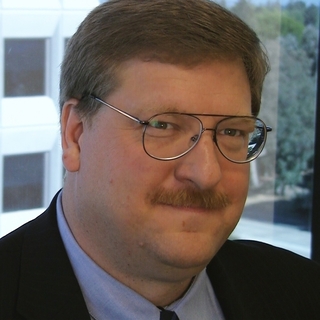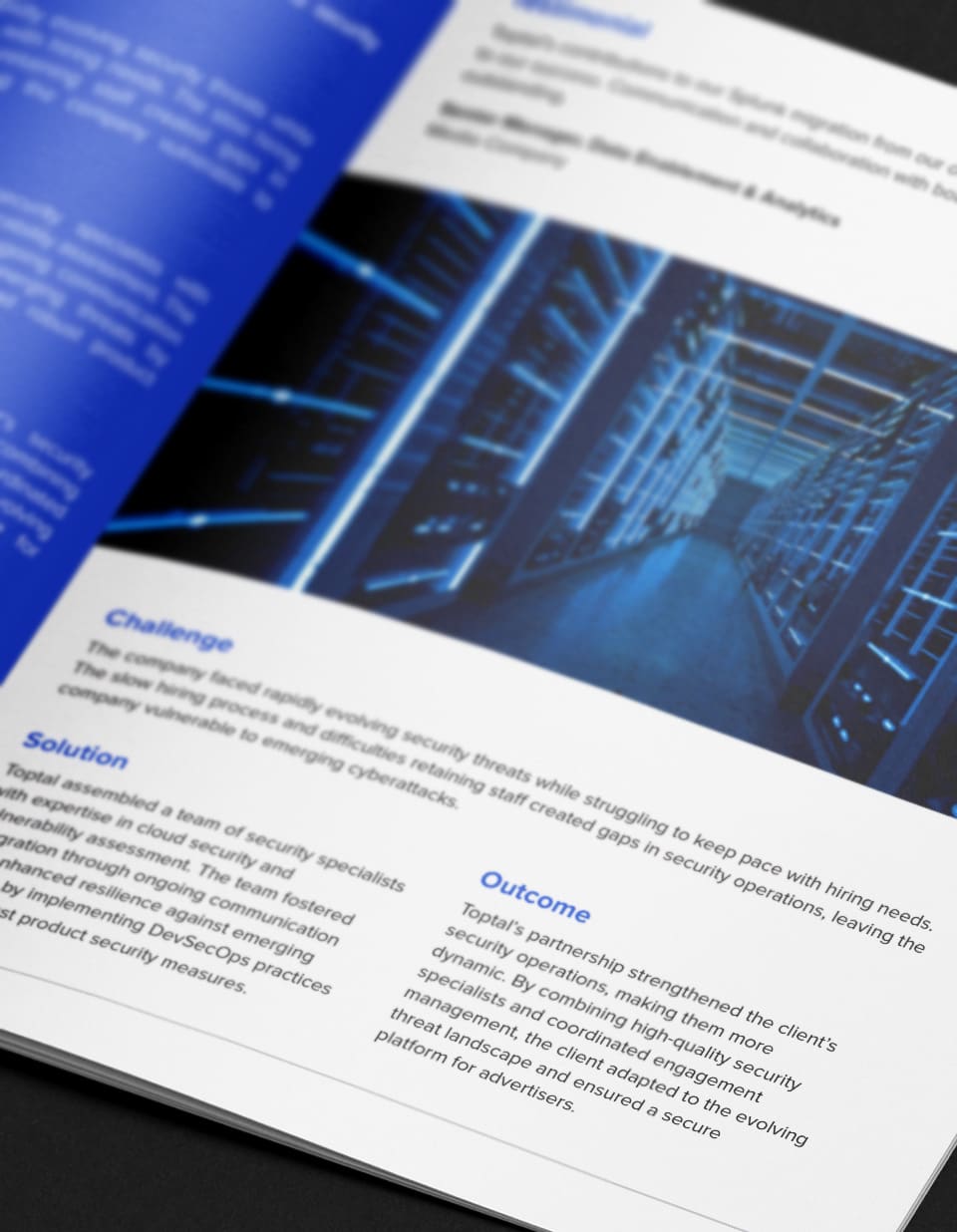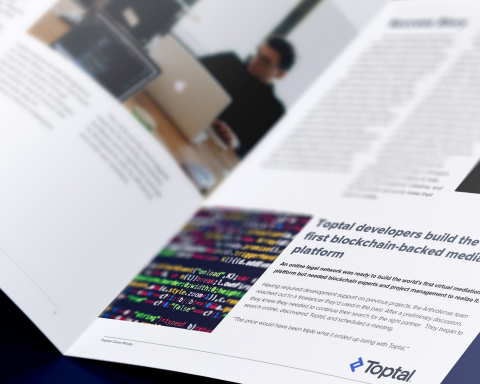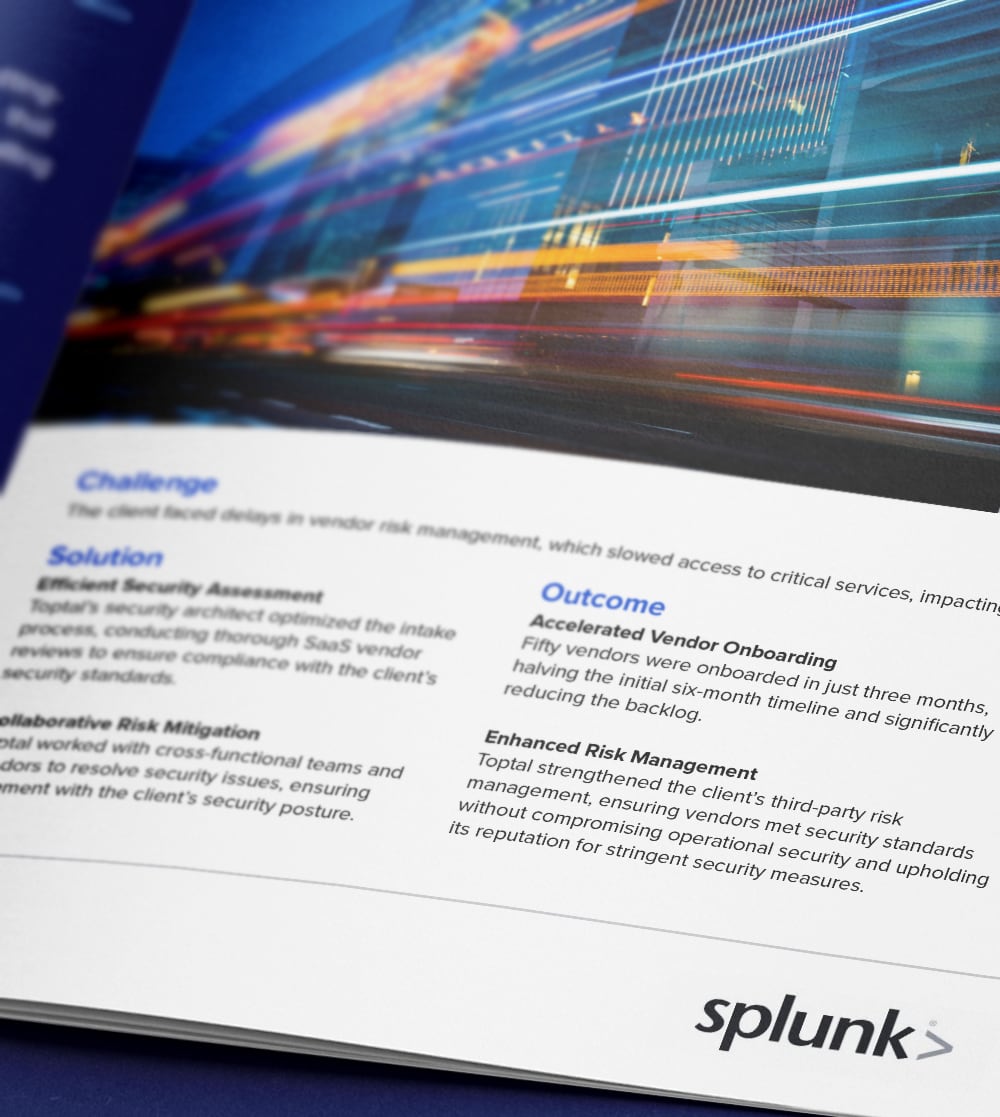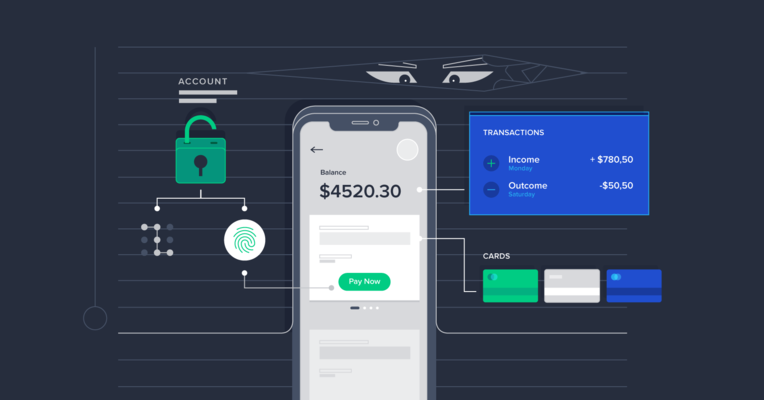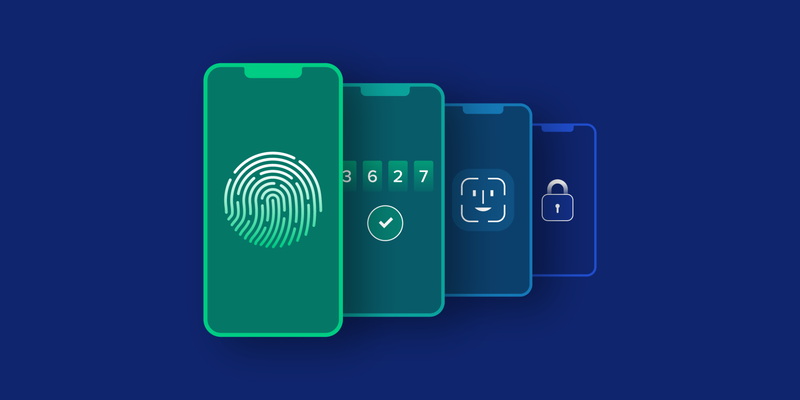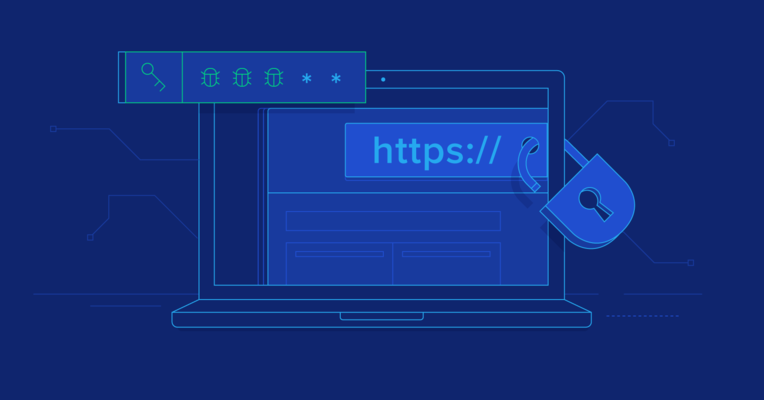
Hire Security Engineers
Hire the Top 3% of Freelance Security Engineers
Hire vetted security engineers on demand. Leading companies choose security engineering freelancers from Toptal for their most important development projects.
No-Risk Trial, Pay Only If Satisfied.
Hire Freelance Security Engineers
Demmy Adeyemo
Demmy is an information security architect with numerous years of experience in systems and security architecture. He has worked with different vendor products and platforms to achieve a cohesive and in-depth defense strategy. A committed and pragmatic professional with good team spirit, Demmy delivers projects with tight schedules and proven client care.
Show MoreArun Pillai
Arun is a senior DevSecOps architect with 12 years of experience and a master's degree in IT. He has worked with government departments, banks, telecom and healthcare companies, and small to medium-scale enterprises worldwide. Arun also has solid expertise in IT security consulting, focusing on DevSecOps, risk assessment, threat and vulnerability management, vulnerability assessment, penetration testing, secure code review, security architecture review, and cloud security and migrations.
Show MoreNicaury Francisco Ramirez
Nicaury is a security engineer with 7+ years of experience in information security, cybersecurity, and systems administration. She has worked in fast-paced, remote environments for a couple of years, developing excellent communication and leadership skills. Nicaury is a certified professional with proven problem-solving and analytical skills, a fast learning curve, and the ability to adapt to any team.
Show MoreDon Kuecker
Don identifies company security risks and creates mitigation strategies using the tools and applications most appropriate for their environment. He implements technologies to address security requirements for existing legacy technologies, merging business concerns and migrations to new strategies such as cloud offerings and their subsequent iterations. Don establishes consensus between departments and business entities based upon solid communication skills and current security risk knowledge.
Show MoreGökay Pekşen
Gökay is a senior manager and principal advisor specializing in cyber security, information security, audit, and standards and regulations. He is highly skilled in enterprise security architecture and an expert in delivering sustainable protection and enhancing reputation and digital existence while enabling risk mitigation to prevent financial loss. Gökay has been working with different technologies, programming languages, and frameworks and is willing to embrace new and challenging projects.
Show MoreOluwagbemiga Joseph
Oluwagbemiga is a lead cybersecurity architect proficient in digital computing security and engineering with a particular interest in information security, vulnerability assessment, penetration testing, risk management, security operations center, cloud security, DevSecOps, and open banking.
Show MoreDavid Cervigni
David is an IT security consultant with 10+ years of experience in improving application security across the entire software development life cycle (SDLC). He is an expert in training teams on secure coding, including auditing, compliance, testing, code reviews, application security vulnerabilities remediation, threat modeling, maturity programs, DevSecOps, and SDL software development.
Show MoreDr. Roman Priebe
Roman is a technical all-rounder who has worked successfully in many different roles, including app development, IT security, full-stack web development, technical project management, and CTO. He prefers challenging projects that broaden his horizon and is highly adaptable, helping out where he is most needed. This includes resolving roadblocks, helping out in development, requirements engineering, systems architecture, team building, or developing and implementing a technical vision.
Show MoreKeidrych Oates Anton
Keidrych is a cloud architect who guides organizations through the quagmire of multi/poly-Cloud Native Computing Foundation (CNCF) technologies so their technological foundation may be secure to all, reliable for customers, and monetarily efficient, leveraging scorched earth capabilities toward zero production impact on plant-scale architecture. Keidrych believes trusted technology serves humanity; a 5% increase in internet or cyberspace trust results in a $3,000+ increase in GDP per capita.
Show MoreEmmanuel Owoeye
Emmanuel is a DevOps and cloud engineer with 8+ years of experience across healthcare, real estate, and manufacturing sectors. He specializes in multicloud environments and containerization, transforming legacy systems into scalable microservices architectures. Emmanuel has implemented CI/CD pipelines that reduced deployment times by 45% and operational costs by 30%. His expertise in monitoring solutions ensures 99.9% uptime while maintaining compliance with PCI-DSS, HIPAA, and ISO standards
Show MoreJohn Barchie
As a senior security manager and consultant, John established, implemented, or audited information security in over 150 institutions. As a certified and practicing trusted advisor with a background in cybersecurity and network engineering, John assists companies in optimizing the benefits of information security programs. Specializing in governance, risk, and compliance, John informs organizations how to evaluate, monitor, and direct information security risk.
Show MoreDiscover More Security Engineers in the Toptal Network
Start HiringA Hiring Guide
Guide to Hiring a Great Security Engineer
Security engineers play a crucial role in protecting your systems, networks, and data from ever-evolving cyber threats. Whether building robust security frameworks, handling incidents, or strengthening an existing application, bringing skilled security engineers on board is key to keeping your organization safe. They focus on proactively detecting threats, managing vulnerabilities, and creating security solutions that grow with your business, giving you peace of mind as you expand.
Read Hiring Guide... allows corporations to quickly assemble teams that have the right skills for specific projects.

Despite accelerating demand for coders, Toptal prides itself on almost Ivy League-level vetting.



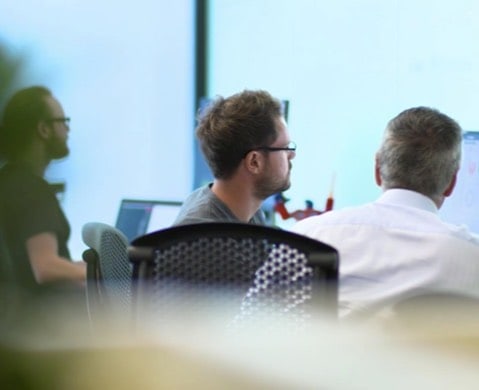





How to Hire Security Engineers Through Toptal
Talk to One of Our Client Advisors
Work With Hand-selected Talent
The Right Fit, Guaranteed
EXCEPTIONAL TALENT
How We Source the Top 3% of Security Engineers
Our name “Toptal” comes from Top Talent—meaning we constantly strive to find and work with the best from around the world. Our rigorous screening process identifies experts in their domains who have passion and drive.
Of the thousands of applications Toptal sees each month, typically fewer than 3% are accepted.
Toptal Security Engineering Case Studies
Discover how our security engineers help the world’s top companies drive innovation at scale.
FAQs
How quickly can you hire with Toptal?
Typically, you can hire security engineers with Toptal in about 48 hours. For larger teams of talent or Managed Delivery, timelines may vary. Our talent matchers are highly skilled in the same fields they’re matching in—they’re not recruiters or HR reps. They’ll work with you to understand your goals, technical needs, and team dynamics, and match you with ideal candidates from our vetted global talent network.
Once you select your security engineer, you’ll have a no-risk trial period to ensure they’re the perfect fit. Our matching process has a 98% trial-to-hire rate, so you can rest assured that you’re getting the best fit every time.
How do I hire security engineers?
To hire the right security engineer, it’s important to evaluate a candidate’s experience, technical skills, and communication skills. You’ll also want to consider the fit with your particular industry, company, and project. Toptal’s rigorous screening process ensures that every member of our network has excellent experience and skills, and our team will match you with the perfect security engineers for your project.
How are Toptal security engineers different?
At Toptal, we thoroughly screen our security engineers to ensure we only match you with the highest caliber of talent. Of the more than 200,000 people who apply to join the Toptal network each year, fewer than 3% make the cut.
In addition to screening for industry-leading expertise, we also assess candidates’ language and interpersonal skills to ensure that you have a smooth working relationship.
When you hire security engineers with Toptal, you’ll always work with world-class, custom-matched security engineers ready to help you achieve your goals.
Can you hire security engineers on an hourly basis or for project-based tasks?
You can hire security engineers on an hourly, part-time, or full-time basis. Toptal can also manage the entire project from end-to-end with our Managed Delivery offering. Whether you hire a security engineer for a full- or part-time position, you’ll have the control and flexibility to scale your team up or down as your needs evolve. Our security engineers can fully integrate into your existing team for a seamless working experience.
What is the no-risk trial period for Toptal security engineers?
We make sure that each engagement between you and your security engineer begins with a trial period of up to two weeks. This means that you have time to confirm the engagement will be successful. If you’re completely satisfied with the results, we’ll bill you for the time and continue the engagement for as long as you’d like. If you’re not completely satisfied, you won’t be billed. From there, we can either part ways, or we can provide you with another security engineer who may be a better fit and with whom we will begin a second, no-risk trial.
How to Hire Security Engineers
The Demand for Security Engineers Is at an All-time High
The demand for security engineers continues to surge as organizations face an escalating barrage of cyber threats. The current shortage of cybersecurity professionals remains a pressing challenge on a global level, with over 3.5 million roles going unfilled in 2023 and the gap continuing to grow due to evolving threats. From sophisticated supply chain breaches to ransomware attacks, no industry is immune, making security engineering a cornerstone of modern IT infrastructure across several sectors, from healthcare to manufacturing and finance. As businesses and organizations gear up to prioritize long-term cybersecurity strategies to protect their data, projects, and clientele, cybersecurity engineers are becoming essential for guaranteeing safety and operational continuity.
Security engineers, often dubbed the architects of cybersecurity, design, implement, and maintain systems to prevent, detect, and mitigate security breaches. This role’s increasing prominence reflects the rising awareness that cybersecurity is a business priority.
This guide is designed to help hiring managers and recruiters seeking top-tier security engineering talent understand the technical expertise required—such as proficiency in encryption, threat detection, and incident response—that will allow them to identify candidates who can meet today’s complex security challenges.
What Attributes Distinguish Quality Security Engineers From Others?
Security engineers require a multifaceted skill set, combining expertise in cybersecurity principles, proficiency in programming and networking, and an in-depth knowledge of threat landscapes. Quality security engineers are adept at designing resilient defensive architectures, identifying system vulnerabilities, and implementing effective incident response strategies. They must also stay up-to-date with the latest security tools and best practices.
A strong security engineer possesses deep knowledge of core security frameworks like NIST or ISO 27001, familiarity with encryption protocols, and the ability to work with monitoring tools such as security information and event management (SIEM) platforms. Their expertise includes penetration testing, malware analysis, and compliance requirements. Proficiency in languages such as Bash or Python and hands-on experience with operating systems like Linux and Windows are equally crucial for dealing with diverse challenges that can emerge when dealing with threats across the board.
Security expertise goes hand in hand with strong analytical and problem-solving skills. Top-tier security engineers understand complex systems and can anticipate potential exploits. They should also demonstrate adaptability when working with evolving technologies that require innovative security solutions, such as edge computing systems or containerized environments.
Security engineers often work closely with different departments to implement security measures that meet the needs of various stakeholders. For this reason, they need to be great communicators, able to explain complex technical details in a way that non-technical collaborators can easily understand. Their ability to build trust and ensure alignment between technical teams and organizational leadership sets them apart as indispensable assets and leaders in their fields.
How Can You Identify the Ideal Security Engineer for You?
To find the right engineer for your security team, you need to have a clear understanding of your organization’s cybersecurity needs. Whether you are looking to fortify network defenses, build a secure software application from scratch, or establish a high-quality incident response system, defining the scope of your requirements will help determine the level of expertise and experience necessary.
Junior security engineers can perform foundational tasks like vulnerability assessments, basic network security configurations, and monitoring system logs. They will bring enthusiasm and adaptability to your team, although they may need guidance for more complex tasks. Juniors are well-suited for organizations looking to build a security operations center (SOC) or support ongoing security maintenance.
Senior security engineers, on the other hand, possess the depth of experience needed for architecting advanced security solutions, conducting sophisticated threat hunting, and responding to high-priority incidents. They are often involved in developing enterprise-wide security policies, overseeing red-team/blue-team exercises, and leading compliance audits. Hiring professionals with several years of experience is usually the best choice for businesses managing critical infrastructure or high-value assets.
To further refine your search, consider candidates with specialized certifications such as Certified Information Systems Security Professional (CISSP), Certified Ethical Hacker (CEH), or Offensive Security Certified Professional (OSCP). These signal an advanced understanding of security principles and hands-on experience in critical areas of cybersecurity that may be relevant to your business.
Complementary Technology Skills for Security Engineers
Security engineers often operate at the crossroads of various technologies, combining their diverse expertise to design and implement robust security strategies. Some key skills that are especially valuable include:
- Cloud Security Expertise: Familiarity with securing cloud environments such as AWS, Azure, or Google Cloud Platform ensures that your organization’s cloud-based assets remain protected from threats.
- Incident Response and Forensics: Security engineers with experience analyzing security incidents and performing forensic investigations can effectively utilize valuable insights to prevent recurrence.
- Automation and Scripting: Proficiency in tools like Ansible or Terraform and scripting languages like Python allows engineers to automate routine security tasks, improving operational effectiveness and reducing human error.
- Zero Trust and Identity Management: Knowledge of zero-trust architecture and identity management solutions like Okta or Microsoft Entra ID is increasingly relevant as organizations adopt remote and hybrid work models.
How to Write a Security Engineer Job Description
Writing a captivating job description is critical for recruiting top security engineering talent. Start by giving the job a title that reflects the role’s focus, like “Senior Application Security Engineer” or “Cloud Security Specialist.” Then, introduce your company by sharing what you do, why cybersecurity is important to your work, and what makes your company culture stand out.
In the role summary, outline the primary responsibilities, such as conducting risk assessments, implementing secure configurations, and responding to incidents. Specify core technical skills, such as proficiency with firewalls, intrusion detection/prevention systems, SIEM tools, and encryption technologies. Include any certifications or frameworks (e.g., CISSP) relevant to the position. Mention the experience you’re looking for, whether it’s familiarity with scripting or a deep understanding of compliance standards, depending on what you need for the role.
Make the position more attractive by highlighting benefits like access to the latest tools, support for training and certifications, flexible remote work options, and the chance to work on high-profile projects. Be sure to include clear instructions on how to apply, making the hiring process as simple as possible.
What Are the Most Important Security Engineer Interview Questions?
The right interview questions help evaluate a candidate’s technical prowess, problem-solving ability, and practical experience. Here are key questions to assess a security engineer’s qualifications:
How do you approach securing a system or network?
This question allows the candidate to demonstrate their grasp of security basics. They should be able to explain layered defense strategies, such as firewalls, intrusion detection systems, endpoint security, encryption, and incident response planning. A strong candidate will highlight a proactive approach, stressing the importance of continuous monitoring and regular audits as part of their security strategy.
What is your experience with vulnerability management?
A skilled security engineer should be able to explain the process for identifying, evaluating, and fixing vulnerabilities, explaining the tools and techniques they use at each step. Look for mentions of tools like Nessus, Qualys, or OpenVAS, as well as practices such as regular patch management, penetration testing sessions, and risk impact-based task prioritization. A thorough response indicates a candidate’s ability to understand and stay ahead of potential threats.
Describe a significant security challenge you’ve had to overcome.
This question provides insight into a candidate’s real-world experience, technical know-how, and behavior under stress. Look for a clear explanation of the problem encountered, how they approached it step by step, and the outcome. Bonus points if they also highlight lessons learned or how they improved processes as a result of the challenges encountered.
How do you keep up with emerging security threats?
Cybersecurity is an ever-changing field, so it’s essential that security engineers stay informed. Strong candidates should mention reading industry reports, participating in organizations like OWASP or DEF CON, using threat intelligence platforms for exercises and practice, and maintaining certifications through continuous learning. Their commitment to staying current demonstrates long-term value.
Can you explain the concept of zero trust? How would you implement it?
Zero trust is a critical framework in modern security strategies. A knowledgeable candidate should discuss its principles—never trusting and always verifying—and how they’d apply them through multi-factor authentication, micro-segmentation, endpoint security, and continuous monitoring. They may also mention ensuring least privilege access to minimize operational risks.
How do you communicate technical issues to non-technical stakeholders?
Effective communication is a key trait of a strong security engineer. Candidates should be able to explain complex issues in simple terms, ensuring decision-makers understand the risks, possible solutions, and how they might impact the project. Ask for examples of successful collaborations with cross-functional teams and project managers.
What is your experience with incident response?
This question gauges a candidate’s readiness to handle cybersecurity incidents. A good security engineer will be able to detail how they’ve detected, contained, eradicated, and recovered from threats. An ideal response will also include insights into documenting incidents for future prevention and conducting post-mortems to improve response strategies.
By asking a mix of technical and situational questions, you can gain insight into a candidate’s expertise, adaptability, and ability to contribute to your organization’s security posture.
What is the Cost of Hiring Security Engineers?
As reported by Glassdoor, the average salary of a security engineer in the United States is $167.000 as of June 2024. However, the cost of hiring security engineers varies depending on the required expertise, the complexity of the role, and the hiring model. Senior professionals with specialized certifications and significant experience often command higher salaries, reflecting the value they bring in managing sophisticated threats and developing advanced security architectures.
For organizations with budget constraints, junior engineers or freelancers can provide cost-effective solutions for less complex tasks. However, investing in senior-level engineers for critical roles often results in better long-term outcomes by minimizing costly breaches and ensuring scalable, resilient security systems. Organizations should also account for ongoing training and certification costs, which help retain talent and ensure their team remains adept at countering evolving threats.
Why Do Companies Hire Security Engineers?
Businesses hire security engineers to protect their systems, data, and reputations in an era of increasing cyber risks. Security engineers provide expertise in crafting defensive strategies, mitigating threats, and ensuring compliance with regulatory standards. Their role is essential for maintaining operational continuity, building customer trust, and avoiding the significant financial and reputational damage that breaches can cause.
From securing cloud environments to protecting on-premises systems, security engineers enable organizations to stay ahead of evolving threats while delivering secure and efficient technological solutions. By hiring skilled security engineers, businesses can build robust defenses that support growth and innovation while safeguarding critical assets.
Featured Toptal Security Engineering Publications
Top Security Engineers Are in High Demand.

